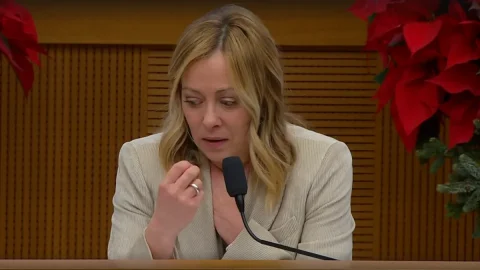From the solidarity contribution to the increase in cigarettes, from the Robin tax to the costs of politics, from Sistri to the revenue forecasts: notes of perplexity, critical notes, doubts about the Government maneuver being examined by Palazzo Madama.
Certainly the observations on one of the most controversial issues do not go unnoticed: the solidarity contribution. The dossier finalized by the Senate technicians in fact underlines that "there are potential evasive strategies that could negatively affect the size of the expected revenue" from the solidarity contribution. And some examples are given: "Through a specific company contract, a more substantial use of 'fringe benefits' could occur in order to reduce income as such and partially circumvent the provision in question".
Again: there could be a "disincentive with respect to the production of income, or to its full declaration, just as the entrepreneurs who own companies could choose to renounce, for the three years of validity of the law in question , to the distribution of profits”. The technicians are then critical of the decision to take 2008 as the reference year for the revenue simulations, given that "to date, the data on the declarations for the year 2009 are largely available" which among other things they would see the proceeds of the grant amounting to "approximately 2,14 billion, a significantly lower figure than estimated", "without however taking into account the possible option for the 48% rate". As for the audience on which to charge the contribution, the Budget service reports the following data: total income from 90 to 150 million: 368.166 units, with an average of 111,3 million; total income over 150 million: 143.368 units, with an average of 271,8 million.
But that's not enough: finally, it would be advisable for the budget service to acquire clarifications regarding the methods with which the extrapolation to 2011 was carried out, "in consideration of the fact that the quantified revenues derive from marginal revenue shares, which could also be partially eroded in relation to the reference economic situation".
More generally, the government should clarify the effects that the maneuver will have on gross domestic product "in the light of the most recent data, of the main public finance figures". Furthermore, the extent of any effects on GDP of the overall measures adopted, both to reduce the deficit and to support growth, should be clarified.
We will talk about the possible overestimation of the Robin tax in a separate article, but the Budget Service technicians also point the finger at the increase in excise duties on cigarettes which can lead to "elusive phenomena" such as the use of contraband products or the transfer of frontier consumption to other EU countries where the price of cigarettes is lower. On the gaming chapter, on the other hand, "no element is provided, not even of an indicative nature, which would allow us to verify the concrete feasibility of the higher revenue of 1,5 billion indicated by the law".
Doubts and perplexities also on another chapter: the reduction of public spending. Among other things, the government measure envisages savings of 6 billion in 2012 and 2,5 billion in 2013 on the costs of ministries and public administration. But – remarked the Senate Budget Service – it is not clear how these figures will be reached.
The body of Palazzo Madama writes that with "the device in question critical issues emerge 'of the indeterminacy of both the Administrations involved, and of the total amount of savings to be made in terms of net balance to be financed". Furthermore, "as far as the provision in question is concerned, it is a formulation that does not seem to find an easy place within the current legislative framework which governs the financial procedures set up to protect accounting transparency". In conclusion, "it is confirmed that it is impossible to accurately evaluate, even from an allocative point of view, the effect of this provision, with respect to the implementation of the originally envisaged cost reductions".
And notations and reservations also come from the commissions.
The Environment commission, in fact, approves the corrective maneuver "with the condition that Sistri (the IT waste traceability system, editor's note) is restored, expecting it to be fully operational from 1 January 2012", and evaluating "the opportunity interventions to overcome technical difficulties”. Furthermore, the commission deems it "appropriate to exclude" from the spending reductions of the Ministry of the Environment, the funds "indispensable for first emergency measures connected to hydrogeological risk".
The Industry Commission says 'yes' to the decree, however pointing out "the opportunity that, in relation to the so-called Robin tax, companies operating in the renewable energy sector are excluded from the application of IRES". Furthermore, he calls for "evaluating the opportunity to include in the emergency measure a mechanism that ensures compensation for Italian companies that have suffered damage following the recent Libyan crisis". The Employment commission approves the corrective maneuver, specifying that "the dismissal of the pregnant worker is radically void, and therefore subtracted from interventions of a contractual nature".





